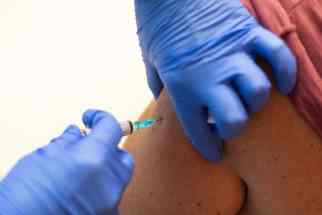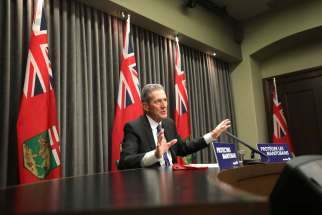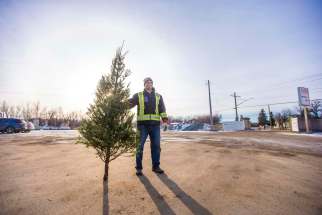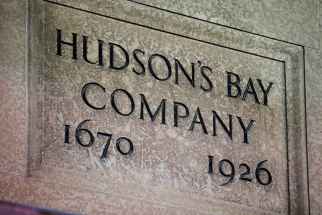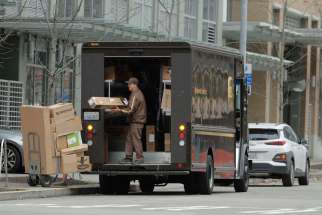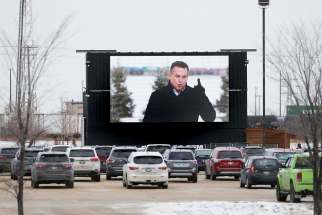A shot in the dark First shipment of Pfizer COVID vaccine could be in Manitoba next week, but province hasn't said who gets it
Read this article for free:
or
Already have an account? Log in here »
To continue reading, please subscribe:
Monthly Digital Subscription
$0 for the first 4 weeks*
- Enjoy unlimited reading on winnipegfreepress.com
- Read the E-Edition, our digital replica newspaper
- Access News Break, our award-winning app
- Play interactive puzzles
*No charge for 4 weeks then price increases to the regular rate of $19.00 plus GST every four weeks. Offer available to new and qualified returning subscribers only. Cancel any time.
Monthly Digital Subscription
$4.75/week*
- Enjoy unlimited reading on winnipegfreepress.com
- Read the E-Edition, our digital replica newspaper
- Access News Break, our award-winning app
- Play interactive puzzles
*Billed as $19 plus GST every four weeks. Cancel any time.
To continue reading, please subscribe:
Add Free Press access to your Brandon Sun subscription for only an additional
$1 for the first 4 weeks*
*Your next subscription payment will increase by $1.00 and you will be charged $16.99 plus GST for four weeks. After four weeks, your payment will increase to $23.99 plus GST every four weeks.
Read unlimited articles for free today:
or
Already have an account? Log in here »
Hey there, time traveller!
This article was published 07/12/2020 (1833 days ago), so information in it may no longer be current.
OTTAWA — The first doses of a COVID-19 vaccine could arrive to each province next week, but Manitobans remain in the dark about who will get the first shots.
Manitoba could receive enough vaccine doses to immunize 4,500 people this month, but did not follow other provinces Monday in releasing plans and priority lists.
Prime Minister Justin Trudeau announced Monday that Canada amended its contract with Pfizer to receive up to 249,000 doses by the end of December.
“The first Canadians will be vaccinated next week, if approved by Health Canada this week,” Trudeau told reporters.
The American company is set to deliver doses directly to Canada, and federal officials have selected 14 sites, including one in Manitoba, and none in the territories. By spring, Ottawa hopes to have hundreds of sites across Canada that can accept various COVID-19 vaccines.
Trudeau announced Monday that the first shipment of doses will be distributed on a per capita basis to provinces. That would mean roughly 9,075 doses arriving in Manitoba by the end of the year.
Health Canada has said it won’t rush its review, but expects to complete the approval process for the Pfizer vaccine by next Monday.
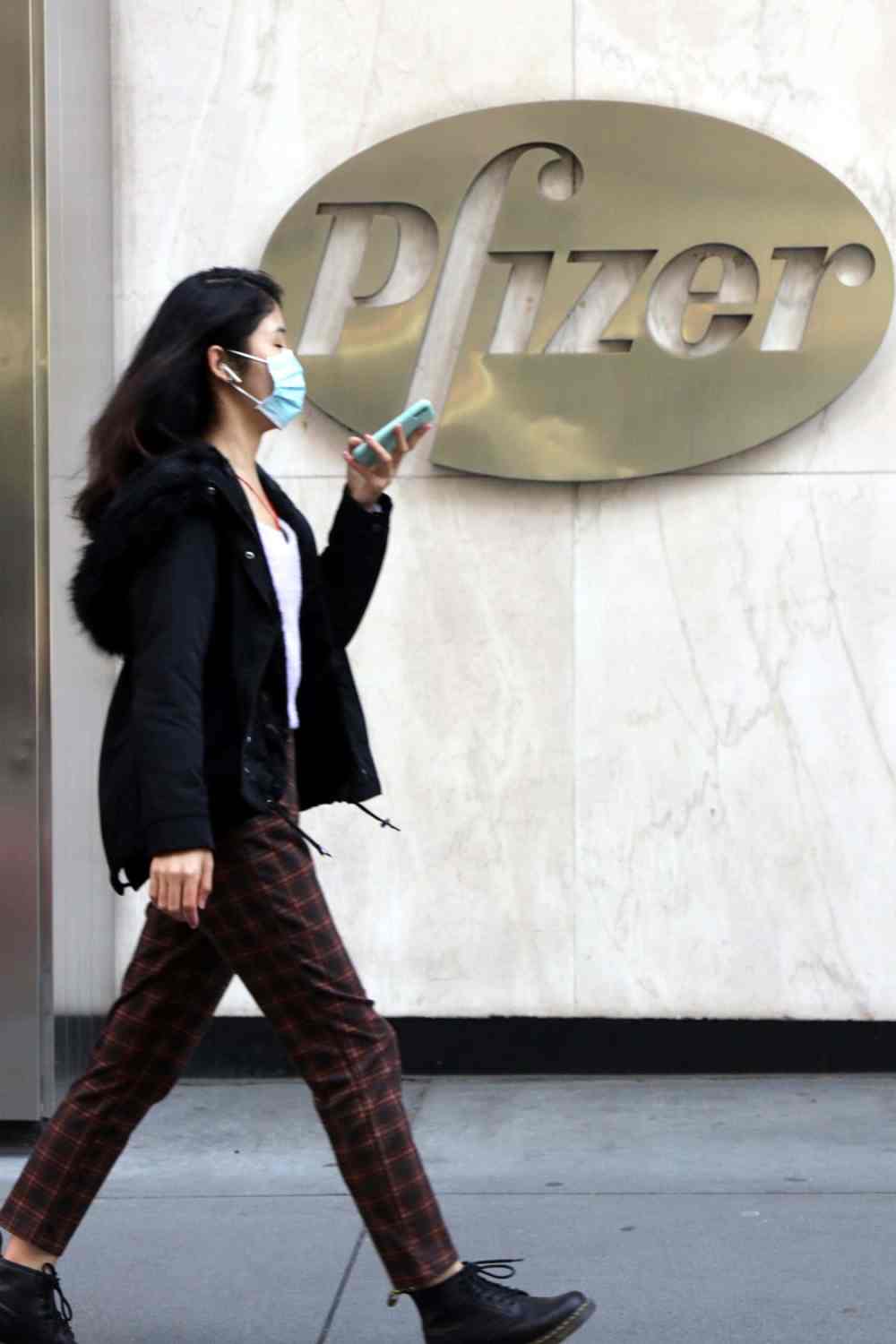
Maj.-Gen. Dany Fortin, the soldier helping co-ordinate Ottawa’s vaccine rollout, said it takes about a day or two for provinces to get the vaccine ready to inject.
“Once you receive the product, you have to unpack, thaw, decant (and) mix, so that’s a fast process for the health professionals,” Fortin said.
The Pfizer vaccine requires two doses, administered weeks apart, and the company wants jurisdictions to administer both doses from the same shipment, instead of depleting it on first doses and holding out for future shipments.
The Trudeau government says Pfizer also needs proof that provinces receiving the vaccine can store it at temperatures of minus-70 Celsius.
While other provinces have announced who will get this month’s doses, Manitoba’s chief public health officer offered no clarity Monday.
“This is going to be a huge undertaking. We know that earlier on we’re going to have very scarce resources, so we have to finalize… the logistics,” Dr. Brent Roussin told reporters.
Unclarity persists over Indigenous vaccination
OTTAWA — It remains unclear how Indigenous people fit into Manitoba’s vaccination protocol.
OTTAWA — It remains unclear how Indigenous people fit into Manitoba’s vaccination protocol.
Last week, Premier Brian Pallister rattled chiefs by saying Manitobans would be forced to the back of the line over Ottawa’s insistence on prioritizing Indigenous people.
“They are going to hold back the portion of our vaccines for Manitoba that they would then indicate to Indigenous and First Nations communities,” he said last week.
“This puts Manitobans at the back of the line; this hurts Manitobans, to put it mildly. We would have the least amount of vaccine available, in other words for everyone else in our provinces.”
The premier insisted he is trying to protect vulnerable indigenous people, but chiefs criticized his remarks as race-baiting.
Ottawa has a constitutional duty to look after First Nations’ well-being on reserves, but the Trudeau government has not carved out a quota for those communities.
On Monday, Maj.-Gen. Dany Fortin said that the territories and some unnamed First Nations groups want a COVID-19 vaccine other than Pfizer, which has the most difficult storage requirements among the three leading candidates.
It’s unclear if any Manitoba groups expressed that preference.
The Southern Chiefs’ Organization says it did not have a preference, and that it’s been in talks with Indigenous Services Canada, “about the need to prioritize First Nation citizens, both on and off reserve,” given their overrepresentation in COVID-19 hospitalizations and deaths.
The Manitoba Metis Federation said it stressed to ISC Minister Marc Miller in a call last Thursday that Ottawa needs to consider them, and not just First Nations and Inuit, because Métis people also have high levels of chronic illnesses.
“The MMF is left apprehensive that its citizens are at risk of being abandoned by both levels of government,” the group wrote Monday.
The Assembly of Manitoba Chiefs and Manitoba Keewatinowi Okimakanak did not respond by deadline.
Meanwhile, Prime Minister Justin Trudeau would not say whether he felt Pallister’s comments about putting put “Manitoba at the back of the line” amount to racism.
“Our work is to make sure that all Canadians get vaccines as quickly as possible,” he instead replied on Monday.
“In terms of distribution, all of us understand that getting vaccines first to the most vulnerable people is exactly what we need to do.”
— Dylan Robertson
“We hope to be able to provide some details on that in the near future.”
A federal arms-length body issued voluntary guidance last week, saying the first COVID-19 vaccines should go to four priority groups.
Those include “residents and staff of congregate living settings that provide care for seniors,” adults aged 80 years or older, health-care workers and “adults in Indigenous communities where infection can have disproportionate consequences.”
That advice, from the National Advisory Committee on Immunization, is not binding.
“It will be up to the provinces to adjust and implement (the guidance) in a way that is suitable for their population,” Trudeau said Monday.
Roughly 10,000 Manitobans live in personal-care homes, and Roussin noted they “are a priority group.”
Quebec and Ontario both released detailed lists of priority groups Monday, with long-term care staff and residents at the front of the line.
In Manitoba, it remains unclear if the vaccine rollout will be administered by the Health Department, Shared Health, and/or regional health authorities. It’s also unclear if any of them will have a register to keep track of who got both doses.
“Manitoba has not yet released a list of priority groups for immunization, but this is part of the ongoing work of our vaccine task force,” wrote a spokeswoman, who did not name or describe the task force makeup.
“We are not able to disclose any details about initial deliveries of the vaccine at this time, for security reasons.”
NDP Leader Wab Kinew said the PC government needs to provide more clarity on the vaccine rollout to cut down on skepticism around immunization.
“The vaccination campaign in Manitoba is going to be one of the biggest logistical challenges our province has ever faced, and a big part of the logistical challenge is to get the public buy-in,” Kinew said.
He said Manitoba’s issues with rolling out enough testing don’t give him confidence the government will achieve herd immunity quickly, even when enough doses arrive in the province.
He urged the government to “share the plan publicly, and let Manitobans understand what it is.”
Meanwhile, numerous questions surround how Indigenous people will fit into the vaccine protocol in Manitoba, the province with the highest proportion of First Nations and Métis people.
The military is helping run a test exercise this month that involves flying a shipment that does not contain vaccines from Belgium, to see if it keeps at the right temperature during the entire journey to 14 provincial delivery points.
Trudeau had previously told Canadians not to expect any shots to arrive until 2021, after other developed countries.
“We wanted not to get people’s hopes up,” he said Monday, insisting that it wasn’t a torrent of opposition criticism that lead him to renegotiate the Pfizer contract.
In any case, Ottawa plans to immunize three million people in Canada by March 31.
dylan.robertson@freepress.mb.ca
With files from Larry Kusch
History
Updated on Monday, December 7, 2020 10:08 PM CST: Corrects temperature to -70.


